- Home
- Robert B. Parker
Wilderness
Wilderness Read online
Wilderness
Robert B Parker
At 46, Aaron Newman was enjoying the good things in life – a good marriage, a good job – and he was in good shape himself. Then he saw the murder. A petty vicious killing that was to plunge him into an insane jungle of raw violence and fear, threatening and defiling the things he cared about.
Robert B Parker
Wilderness
Prologue.
It was Wednesday and the sky was a flat acrylic blue when Aaron Newman saw the murder. He was jogging home from the health club along the railroad tracks. His biceps were pumped up from forty-five curls, his pectorals swollen from forty-five bench presses, his latissimus dorsi engorged from forty-five pull downs. His legs felt loose and easy and the sweat seemed to oil the hinges of his body as he ran. His breathing was easy and spring was still left in his calves. Ahead of him, where the road looped in close to the tracks, he saw a tall gaunt man with black hair slicked back fire three shots into the head of a kneeling woman. The gun was short and gray, and after the third shot the man slipped it under his coat and got into a blue Lincoln with an orange vinyl roof and drove away.
The woods were still. There was a locust hum and a bird chatter that Newman didn't recognize. He stood where he had stopped and looked at the woman's body. He was too far to see clearly, but the back of her head was bloody and she was motionless, lying on her side, her knees bent. She looked like a small animal that had been run over on the road. Newman was sure she was dead.
"Jesus Christ," he said.
He began to walk toward her slowly, squinting, fuzzing his vision deliberately so that he didn't have to see the scramble of brains and blood. A crow swooped in from his left and landed on the ground beside the woman's body with a rustle of wings. Newman jumped at the sudden dark flash of life. The bird pecked at the pulpy mass of the woman's head and Newman looked away.
"Jesus Christ," he said. He picked up a pine cone and threw it at the crow; it flared up away from the woman and circled into a tree.
"Nevermore," Newman said.
He stood now directly over the woman, squinting, looking only obliquely at her. He didn't want to touch her. What if he touched her and she were alive with her brains drooling out of the back of her head. If she moved he was afraid he'd bolt. He felt helpless. He wouldn't be able to help her. He'd better run for the cops. It was maybe another mile. That wasn't hard. He'd run thirteen Friday. He'd already run nine today.
Is she dead? they'd say.
I don't know, I didn't dare touch her, he'd say.
And the cops would look at each other. No, it would be too embarrassing. He'd have to touch her. He squatted down on his heels and felt around for her neck, looking at her only sideways with his eyes nearly shut. He felt for the pulse in the carotid artery. The same place he took his own after running. There was no pulse. He made himself feel hard for nearly a minute. Nothing. As he moved his hand he felt something warm and wet and jerked his hand away and rubbed it on the ground without looking. He stood up. The woods were nearly all white pine here, and the sun coming through the trees made a ragged dappled pattern on the woman's white slacks. One shoe was missing. Her toenails were painted maroon.
Newman turned and began to jog down the railroad tracks. As he jogged he could feel the panic build in him, and he ran faster toward the cops.
CHAPTER 1.
She was there when he drove back with two local cops. The crows had been at her, and as the patrol car pulled in beside the railroad tracks three crows flew up and went to the trees.
For the two cops it was the first shooting victim they had ever seen.
They had seen bad corpses in car wrecks and people who'd died of heart attacks on the way to the hospital, and once they'd had to remove the remains of an old man who had died three weeks prior. But never before a murder. The murder scared them a little.
The senior officer was Ed Diamond, six and a half years on the force.
Four years of high school, three years in the Army and on the cops. He was not quite twenty-eight.
"Check her, Jim," he said.
Jimmy Tinkham was twenty-six, high school, college, a criminal justice major, and onto the Smithfield force. He was blond. His cheeks were rosy and he shaved three times a week.
He squatted beside her, the big handle of his service revolver sticking out at an odd angle. He felt her neck as Newman had done. Newman liked that. He'd been professional. Like they were.
"Dead and starting to cool," Tinkham said.
Diamond nodded. "I figured," he said. Above them on the tree branch in a row, the crows sat. Their bodies motionless, moving their heads.
"We better run it through," Tinkham said.
Diamond nodded. He took a notebook from his shirt pocket, a pencil from the same pocket. He pushed his campaign hat back on his head a bit more; the Smithfield force wore them in the summer.
"What time you find her?" he said.
Newman shrugged. "I don't know," he said. "I left the health club at five. It's about four miles to here. I run ten minute miles. It must have been about twenty of six."
Diamond wrote 5:40 in his notebook. "She just the way you left her?"
"Yes."
"And you saw the man shoot her?"
"Yes."
"Why didn't you intervene?"
"It was too quick. I was too far away. It was over before I knew what happened."
"And you didn't get the license number?" "469-AAG," Newman said. He hadn't consciously registered it. It surprised him. But he knew that he noticed things. He always had.
Tinkham raised his eyebrows and stuck out his lower lip.
Diamond said, "Can you give us a description?" "Of him or the car?" Newman said.
"Both. Him first."
"He was tall. Maybe six three, and skinny. No, not skinny, gaunt, but sort of strong looking, like Lincoln, you know?"
Diamond wrote 6'3". Lean. Muscular.
"And his hair was black and slicked back tight against his scalp.
Short. No sideburns. He had on a lime green leisure suit and white shiny loafers with brass tassels."
"And the car?"
"Lincoln, new. Orange roof, blue body. Roof is vinyl." Newman found himself talking like a television cop. Christ, he thought, even here I'm trying to sound right.
"Okay," Diamond said, "now where were you…" "Eddie," Tinkham said. "Why fuck around with that? You know the statics are going to do this and we're not. We don't even have mug books, for cris sake Whyn't you put out a pick-up on the radio for that car with that description. Then we'll inventory the scene so that when some state police corporal shows up here and looks around he won't think we're a couple of fucking assholes."
Diamond nodded and went to the patrol car.
"Aren't you the writer?" Tinkham said.
Newman nodded. "The one," he said.
"Oughta get a few good stories out of this one," Tinkham said.
Newman nodded.
"I see you running every day," Tinkham said. He stood with his back to the dead woman. The earth had rotated a bit and the dappling shadow of the trees fell across the police cruiser, leaving the woman in shade.
"How far you go?" "I do about ten miles," Newman said. "Three days a week I run up to the health club and lift a little."
"Losing any weight?" Tinkham said.
"Yeah. Maybe twenty, twenty-five pounds so far." Newman said. He was conscious of saying yeah. A regular guy. One of the boys. At ease with cops and jocks and guys that played pool for money.
One of the crows made a swoop down over the dead woman and didn't dare.
He kept in the air and circled back up to the tree branch. There were five crows there now.
Diamond came back from the cruiser. "Couple
of statics coming down from the Smithfield barracks," he said. "Alden says don't touch anything till they get here."
Tinkham nodded. "You want to write?" he said.
Diamond said, "Yes."
Tinkham squatted down again beside the woman. "Female," he said.
"Black, age"-he shrugged-"twenty to thirty, white slacks, yellow halter top, black sling-strap high-heel shoe (one), one shoe missing, gold hoop earrings." Diamond said, "You sure there's two?"
"You want to turn her head and look?" Tinkham said.
Diamond said "No" and continued to write in his notebook.
"Large gold ring on index finger of right hand, picture of a queen on it." Diamond said, "What?"
"Picture of a queen," Tinkham said. "How the fuck do I know who it is.
You know?" He looked at Newman.
Newman leaned closer. You get used to anything. The woman's hand was sprawled out away from her body and Newman could look at the ring without seeing the shattered skull.
"Nefertiti," he said.
Diamond looked at him. Tinkham said, "Or at least not often."
"It's the King Tut craze," Newman said.
Diamond said, "Never mind."
"Victim is prostrate on left side, appears to have been shot several times in right rear quarter of head. No evidence of rape or sexual abuse. No sign of struggle. No bruises or abrasions on visible parts of body, neck, right arm. Face obscured by blood and disfigured by apparent gunshot wound."
Newman realized he'd been hearing the siren for a time without noticing. Then a blue Massachusetts State Police car pulled in beside the Smithfield cruiser. Behind it, another Smithfield cruiser.
"Inside of right arm shows marks of probable hypodermic injections," Tinkham said.
Two big troopers got out of the Massachusetts State Police car. They wore campaign hats and black boots. Their faces glistened with the closeness of their shaves. Their uniform shirts were pressed with military creases. Their gunbelts glowed with polish. Their hair barely showed under the hats. The sideburns were trimmed short. One was black.
The white trooper said to Diamond, "Touch anything?"
Diamond shook his head.
The black trooper looked down at the woman. "Black," he said. "What the hell she doing out here?" Tinkham said, "I don't know. She don't live around here, though."
The black trooper looked at Tinkham for ten seconds, then he said, "No shit?"
Tinkham's face reddened. "Maybe she was selling watermelon," he said.
The black trooper smiled. Once. A smile that came on and went off. He looked down at the woman. "Junkie," he said.
The white trooper said, "Tracks?"
The black trooper nodded. "All up and down her right arm." The white trooper said to Newman, "You see the shooting?" "Yes," Newman said.
"Could you identify the killer?" "Yes," Newman said. "I'm sure I could."
CHAPTER 2.
It's like the Army, Newman thought. You go in one end of the process and it starts taking you along and you get numb and after a while you come out the other end. Honorable discharge. Or whatever. He sat at a gray metal table in the homicide squad room at state police headquarters on Commonwealth Avenue and looked at the pictures of criminals in large albums. He was still in warm-up pants and a white T-shirt that said Adidas across the front. He wore yellow Nike training shoes with a blue swoosh. The sweat that had been so lubricant two hours earlier had stiffened and chilled. He was hungry.
At 8:47 in the evening he saw the man. Profile and full face, staring at him. Hair slicked back, deep eye sockets. Adolph Karl, male, Caucasian, dob 7/15/30, aka Addie Kaye.
"This is him," Newman said.
A state police detective named Bobby Croft swung his feet down off the top of his desk and walked over. He looked at Karl's picture.
"Him?" Croft said. "Adolph Karl? Son of a bitch. You sure?"
Newman said, "Yes. That's him. I'm sure."
Croft walked to the end of the squad room opened the frosted glass half-door that said Lieutenant Vincent on it, and poked his head inside.
"Hey, Murray," he said. "Come have a look."
Lieutenant Vincent came out, round-faced and graceful, with a bald head and blue-rimmed glasses. He walked down to the table where Newman sat and looked over Newman's shoulder at the mug book.
"Show him," Croft said.
Newman pointed to the picture of Adolph Karl. "Him," he said.
Vincent raised his eyebrows and looked at Croft. He said to Newman, "You're sure?" "I'm sure," Newman said.
Vincent smiled. "Why don't you have Adolph brought in, Bobby. We can put him in a show-up and just double check. We wouldn't want Adolph's civil rights compromised."
Croft nodded and went out of the squad room Newman said, "You know this Karl, Lieutenant?" Vincent said, "Yes. He's bad man. Prostitution, narcotics, loan sharking, extortion. He's important enough to have most of his assaults done for him now. I'm a little surprised. Must have been personal. Anybody with him in the car?"
"There must have been," Newman said. "He got in the passenger's side when the car drove off."
"And he did it himself." Vincent sucked on his bottom lip. "You want some coffee?"
Newman nodded.
Vincent said to a uniformed trooper, "Charlie, get us a cup of coffee will you? Cream and sugar?" Newman said, "Black."
Vincent went back to his office.
The trooper brought the coffee. "You want more," he said, "out that door and turn right." Newman said, "Thanks."
He drank the coffee and three more cups. He read the morning paper. He looked at the policemen coming and going. He stared at the fluorescent lights. At a quarter to twelve Croft came into the squad room "Let's take a look, Mr. Newman."
The show-up room was dark. Three men stood on a small lighted stage.
One of them was Adolph Karl. He was wearing a dark blue polyester leisure suit with light blue piping, and a light blue polyester shirt with dark blue trim. His hair was black and combed tightly against his skull. It looked wet. His eyes were deep in the eye sockets. His ears stuck out. He swallowed once and his big Adam's apple moved.
Newman knew that Karl couldn't see him in the dark, but he felt scared.
Six hours earlier Newman had seen Karl shoot the back of a woman's head off.
"Recognize the murderer among those men?" Croft said.
"On the end in the blue leisure suit. That's him."
Croft said, "You're sure?"
Newman nodded, then realized Croft couldn't see him in the dark. "Yes," he said. "I'm sure."
"No doubts? You could swear to it in court?"
"Yes."
"All right," Croft said. He stressed the second word.
They went out of the show-up room and back to Croft's desk. Lieutenant Vincent came out of his office. Croft nodded at him. Three times.
Vincent smiled. "Very good," he said. "His lawyer with him?"
Croft said, "Yeah, but we got the son of a bitch, Murray. Lawyer or no lawyer." Vincent said, "If he sticks." He nodded at Newman.
Newman said, "I'll stick, I'm sure it's him. I saw him." Vincent smiled. "Sure. I know you will. And it's a damned good thing to bag Karl. We've all wanted him for a long time."
"What happens now?" Newman said.
"We'll process Karl. There will be a preliminary hearing. We'll let you know. Eventually we'll go to court and you'll testify."
"Can I leave now?"
"Yeah, but first a man from the Essex County DA's office wants a statement."
"They bring you in in the cruiser?"
"Yes."
"Bobby," Vincent said. "When he's through, whyn't you run Mr. Newman up to wherever it is." "Smithfield," Newman said.
"Yeah, Smithfield. Whyn't you run Newman up to Smithfield. When you come back, come in and we'll chat."
Croft nodded.
It was nearly 2 A.M. when they went north up Route 93. Newman said to Croft, "What did the lieutenant mean, "If he
sticks'?"
The police radio was a soft murmur in the background, so low Newman wondered how Croft could hear it.
Croft shrugged in the dark. "People change their minds sometimes.
Decide they made a mistake. An eyewitness is good at the beginning but a lot better at the end." "I didn't make a mistake," Newman said.
Croft was silent. The radio murmured. The dispatcher's voice rhythmic and without affect. The messages indistinguishable to Newman.
Croft glanced over at Newman, then looked back at the road.
Newman was exhausted. He'd been up since six-thirty. The coffee he'd drunk made him jumpy but no less tired. It felt corrosive in his stomach. He leaned his head back against the headrest and took a deep breath. Forty-six, he thought. I'm forty-six years old.
Croft turned off at Route 128. "Mr. Newman," he said, "I'm going to say something that Lieutenant Vincent would cut off my balls for saying."
Newman opened his eyes and rolled his head over and looked at Croft.
"The reason we're wondering if you'll stick is because we're wondering if someone might squeeze you. You got a right to know what you're getting into, and Adolph Karl is a fucking psychopath."
A thrill of fright flickered in Newman's stomach.
"You mean he might try to stop me from testifying."
"Yeah."
"Would he kill me?"
"I think he'd threaten you first. We can give you protection. It ain't all that bad. But it may be awkward for a while."
"How long would I have to have protection?"
"Hard to say," Croft answered. "We don't have to worry about it now.
Nobody knows who you are."
"But at the hearing?"
"Then they'll know. Then we'll cover you. It'll be all right, but I figure you got the right to know how it'll work. And the sooner you know, the longer you'll have to get used to it."
The car pulled off 128 at the Main St.-Smithfield exit. It was twenty minutes of three and the streets were empty.
"Where to from here?" Croft said.
"Keep going straight. I'll tell you." The thrill of fright vibrated steadily now in Newman's stomach. He could feel the electric buzz of it in his fingertips and along the insides of his arms.

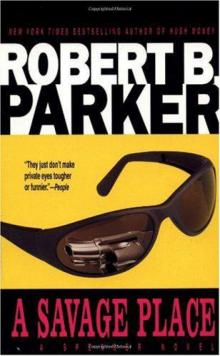 A Savage Place s-8
A Savage Place s-8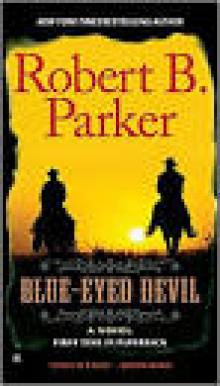 Appaloosa / Resolution / Brimstone / Blue-Eyed Devil
Appaloosa / Resolution / Brimstone / Blue-Eyed Devil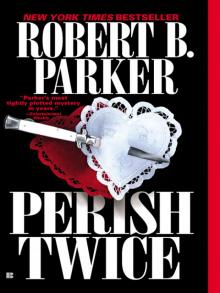 Perish Twice
Perish Twice Spare Change
Spare Change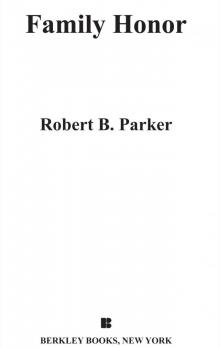 Family Honor
Family Honor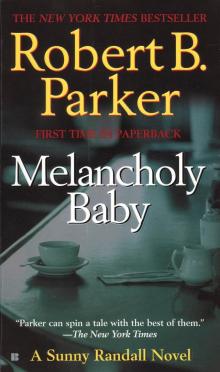 Melancholy Baby
Melancholy Baby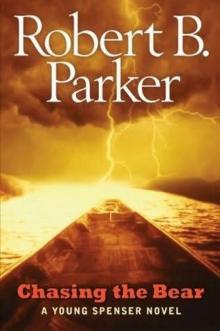 Chasing the Bear
Chasing the Bear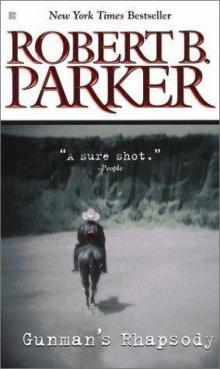 Gunman's Rhapsody
Gunman's Rhapsody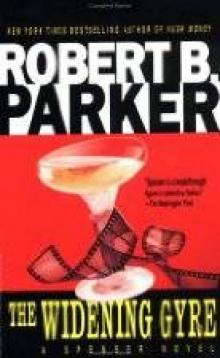 The Widening Gyre
The Widening Gyre Thin Air
Thin Air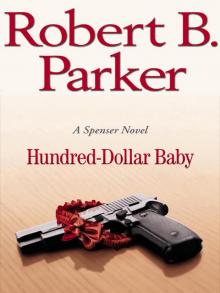 Hundred-Dollar Baby
Hundred-Dollar Baby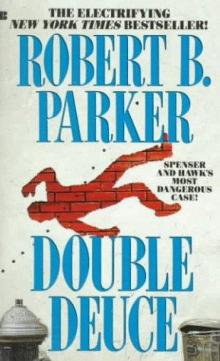 Double Deuce s-19
Double Deuce s-19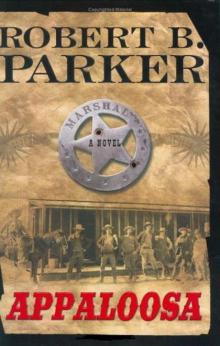 Appaloosa vcaeh-1
Appaloosa vcaeh-1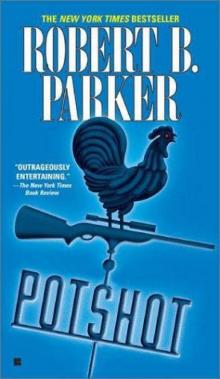 Potshot
Potshot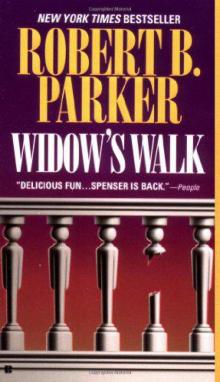 Widow’s Walk s-29
Widow’s Walk s-29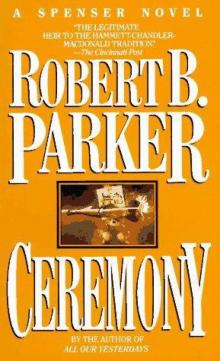 Ceremony s-9
Ceremony s-9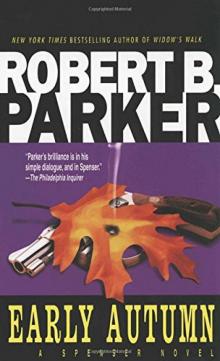 Early Autumn
Early Autumn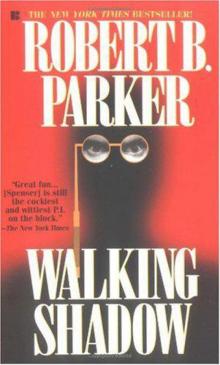 Walking Shadow s-21
Walking Shadow s-21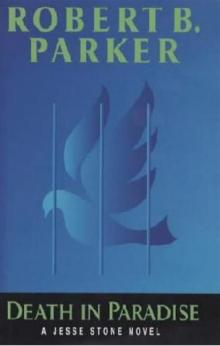 Death In Paradise js-3
Death In Paradise js-3 Shrink Rap
Shrink Rap Blue-Eyed Devil
Blue-Eyed Devil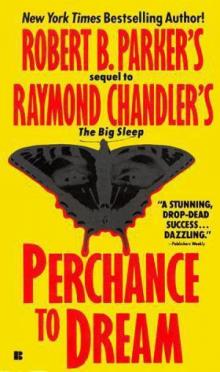 Perchance to Dream
Perchance to Dream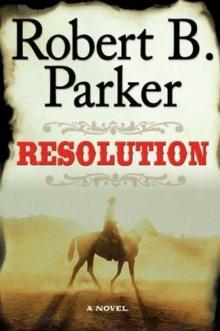 Resolution vcaeh-2
Resolution vcaeh-2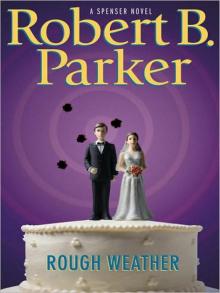 Rough Weather
Rough Weather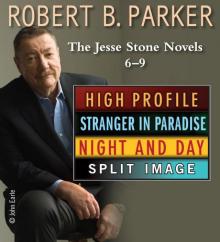 The Jesse Stone Novels 6-9
The Jesse Stone Novels 6-9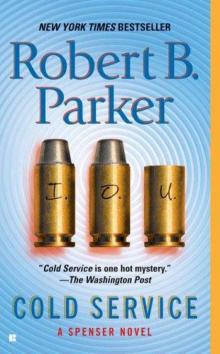 Cold Service s-32
Cold Service s-32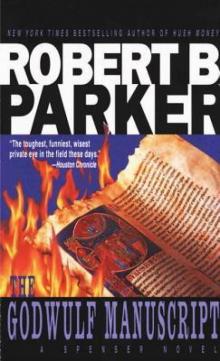 The Godwulf Manuscript
The Godwulf Manuscript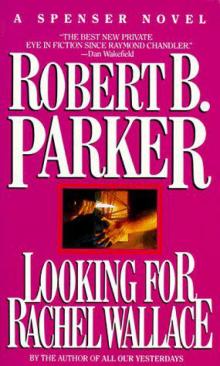 Looking for Rachel Wallace s-6
Looking for Rachel Wallace s-6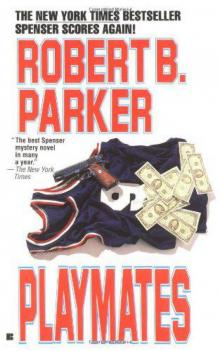 Playmates s-16
Playmates s-16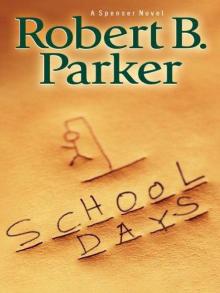 School Days s-33
School Days s-33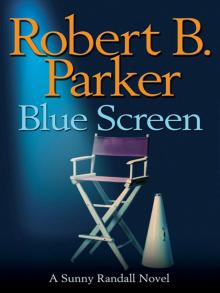 Blue Screen
Blue Screen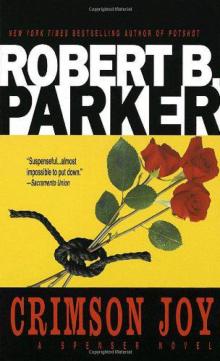 Crimson Joy
Crimson Joy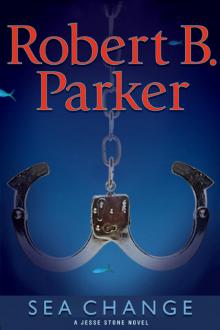 Sea Change js-5
Sea Change js-5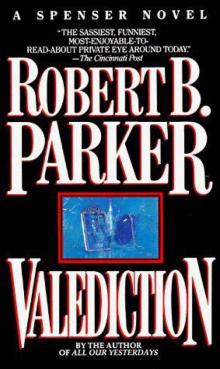 Valediction s-11
Valediction s-11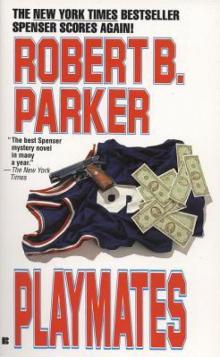 Playmates
Playmates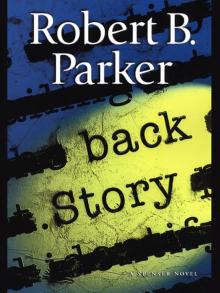 Back Story
Back Story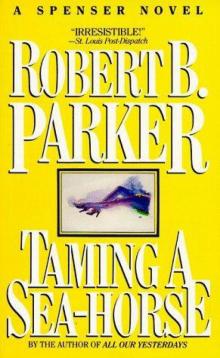 Taming a Sea Horse
Taming a Sea Horse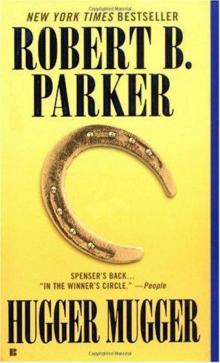 Hugger Mugger
Hugger Mugger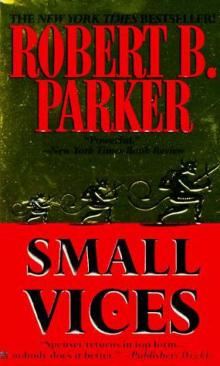 Small Vices s-24
Small Vices s-24 Silent Night: A Spenser Holiday Novel
Silent Night: A Spenser Holiday Novel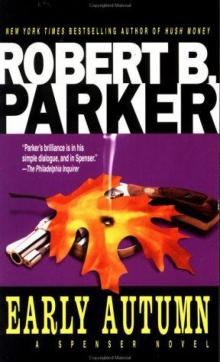 Early Autumn s-7
Early Autumn s-7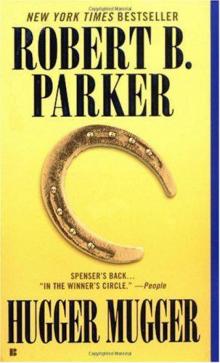 Hugger Mugger s-27
Hugger Mugger s-27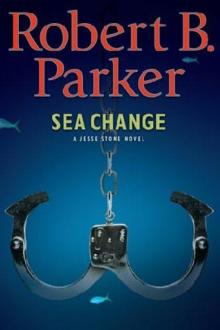 (5/10) Sea Change
(5/10) Sea Change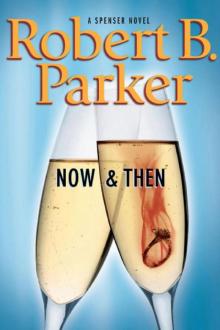 Now and Then
Now and Then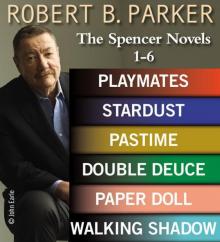 Robert B. Parker: The Spencer Novels 1?6
Robert B. Parker: The Spencer Novels 1?6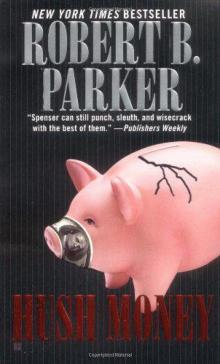 Hush Money s-26
Hush Money s-26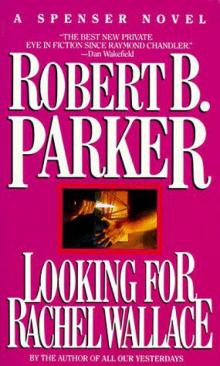 Looking for Rachel Wallace
Looking for Rachel Wallace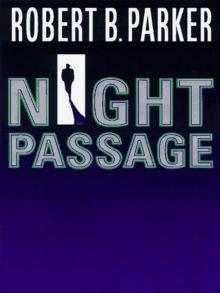 Night Passage
Night Passage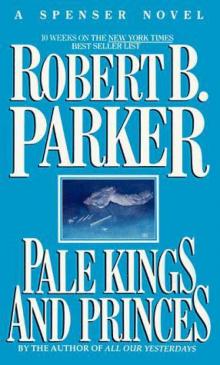 Pale Kings and Princes
Pale Kings and Princes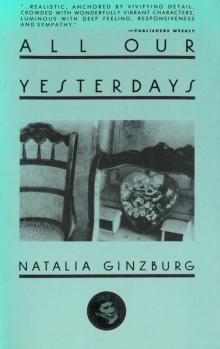 All Our Yesterdays
All Our Yesterdays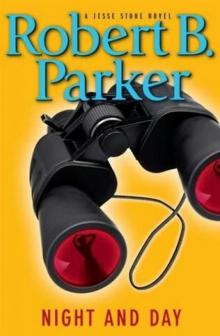 Night and Day js-8
Night and Day js-8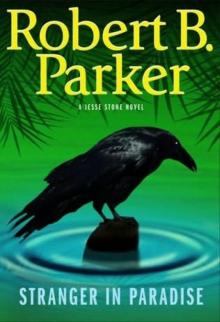 Stranger in Paradise js-7
Stranger in Paradise js-7 Double Play
Double Play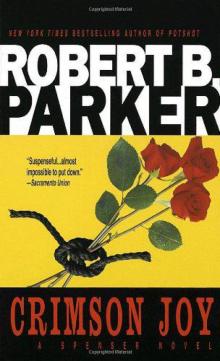 Crimson Joy s-15
Crimson Joy s-15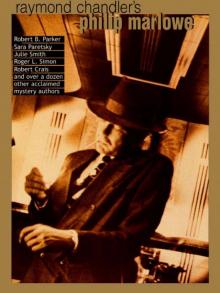 Raymond Chandler's Philip Marlowe
Raymond Chandler's Philip Marlowe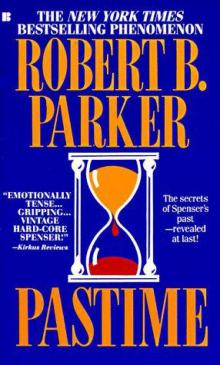 Pastime
Pastime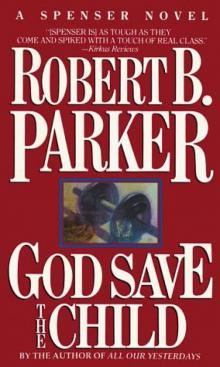 God Save the Child s-2
God Save the Child s-2 Bad Business
Bad Business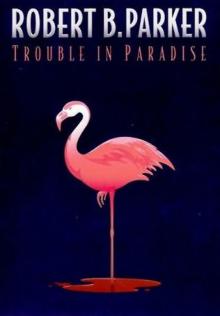 Trouble in Paradise js-2
Trouble in Paradise js-2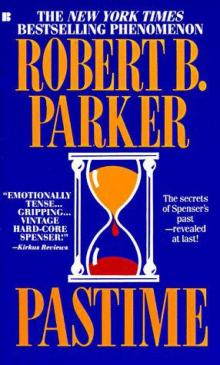 Pastime s-18
Pastime s-18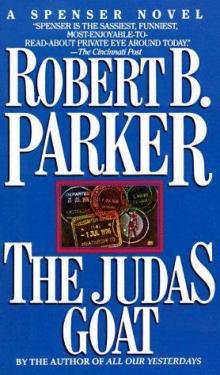 The Judas Goat s-5
The Judas Goat s-5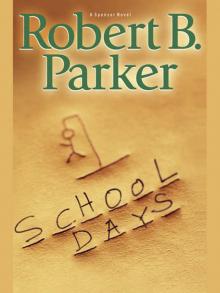 School Days
School Days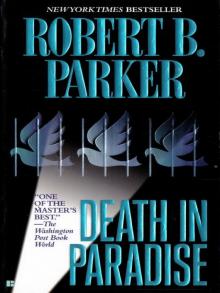 Death In Paradise
Death In Paradise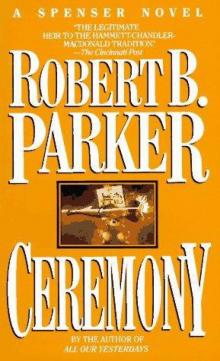 Ceremony
Ceremony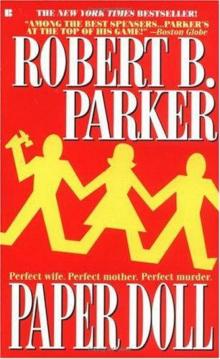 Paper Doll s-20
Paper Doll s-20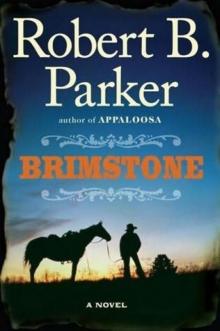 Brimstone vcaeh-3
Brimstone vcaeh-3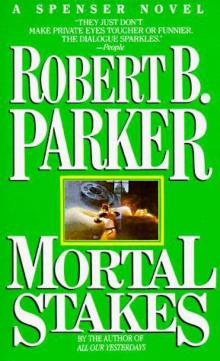 Mortal Stakes s-3
Mortal Stakes s-3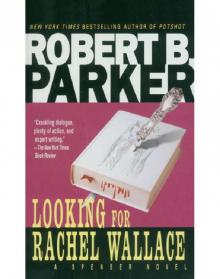 Spencer 06 - Looking for Rachel Wallace
Spencer 06 - Looking for Rachel Wallace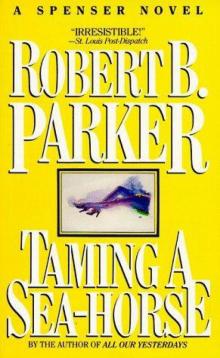 Taming a Sea Horse s-13
Taming a Sea Horse s-13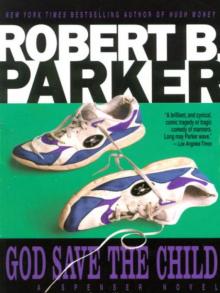 God Save the Child
God Save the Child Chance
Chance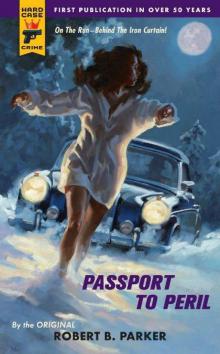 Passport To Peril hcc-57
Passport To Peril hcc-57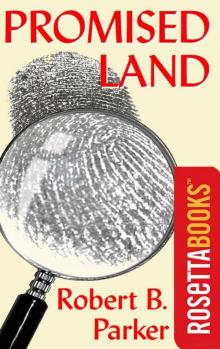 Promised Land
Promised Land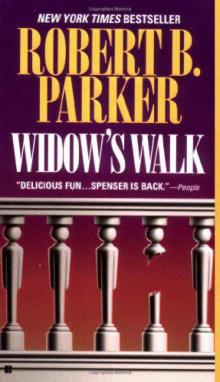 Widow’s Walk
Widow’s Walk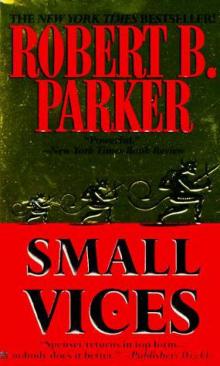 Small Vices
Small Vices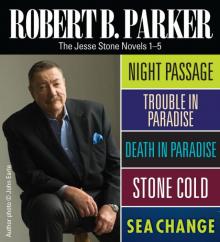 Robert B Parker: The Jesse Stone Novels 1-5
Robert B Parker: The Jesse Stone Novels 1-5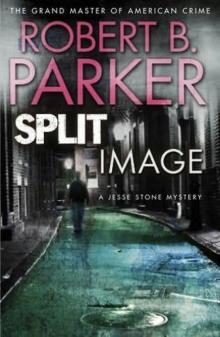 Split Image js-9
Split Image js-9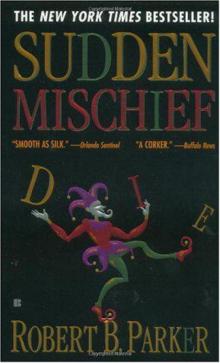 Sudden Mischief s-25
Sudden Mischief s-25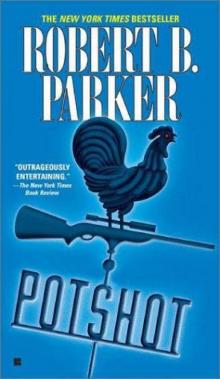 Potshot s-28
Potshot s-28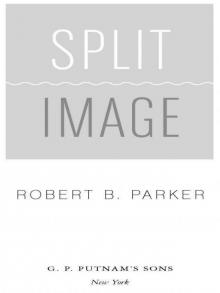 Split Image
Split Image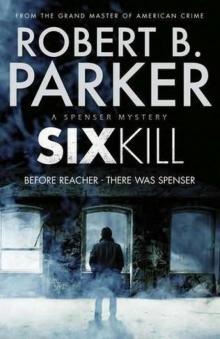 Sixkill s-40
Sixkill s-40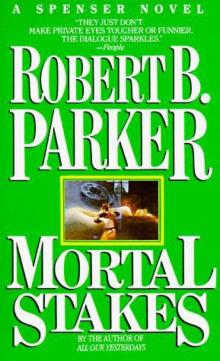 Mortal Stakes
Mortal Stakes Stardust
Stardust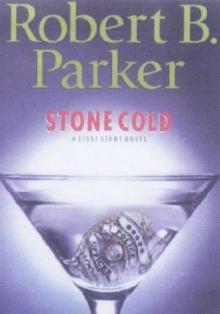 Stone Cold js-4
Stone Cold js-4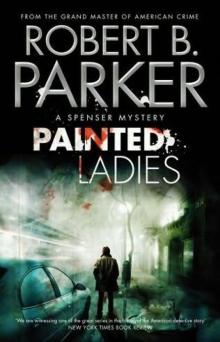 Painted Ladies s-39
Painted Ladies s-39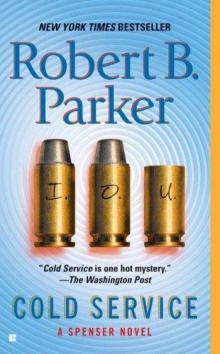 Cold Service
Cold Service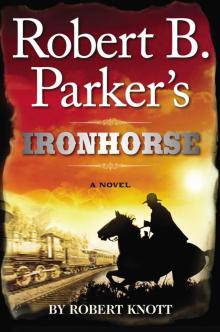 Ironhorse
Ironhorse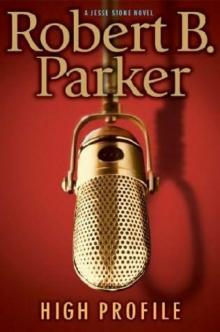 High Profile js-6
High Profile js-6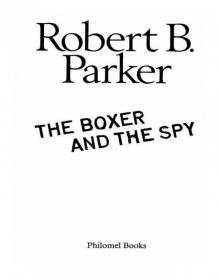 The Boxer and the Spy
The Boxer and the Spy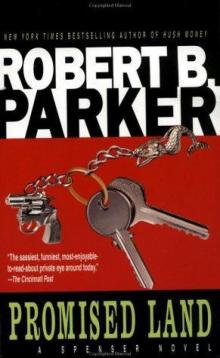 Promised Land s-4
Promised Land s-4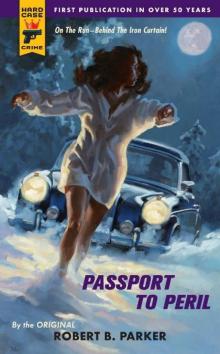 Passport to Peril (Hard Case Crime (Mass Market Paperback))
Passport to Peril (Hard Case Crime (Mass Market Paperback))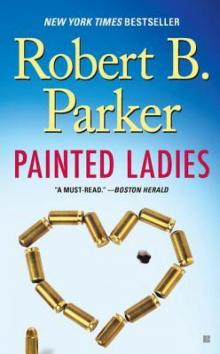 Painted Ladies
Painted Ladies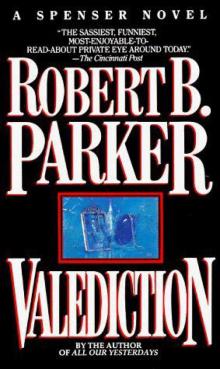 Valediction
Valediction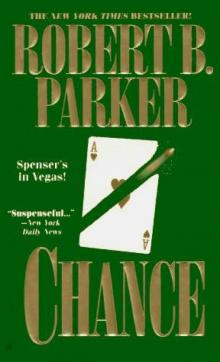 Chance s-23
Chance s-23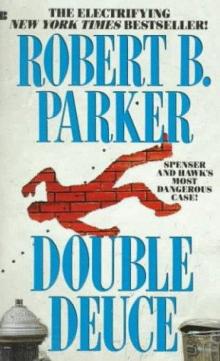 Double Deuce
Double Deuce Wilderness
Wilderness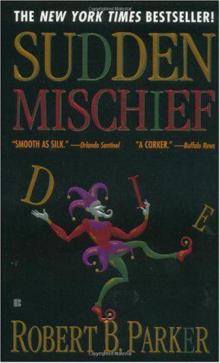 Sudden Mischief
Sudden Mischief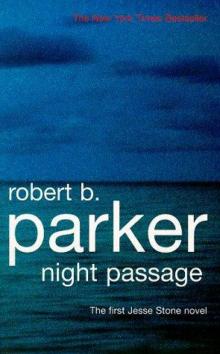 Night Passage js-1
Night Passage js-1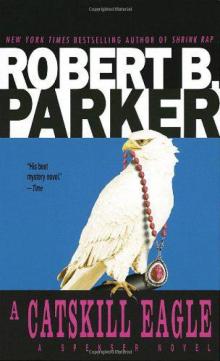 A Catskill Eagle
A Catskill Eagle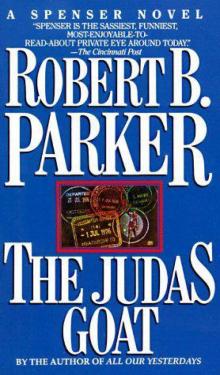 The Judas Goat
The Judas Goat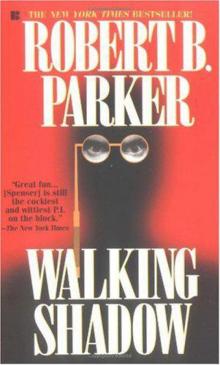 Walking Shadow
Walking Shadow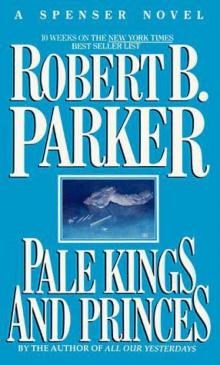 Pale Kings and Princes s-14
Pale Kings and Princes s-14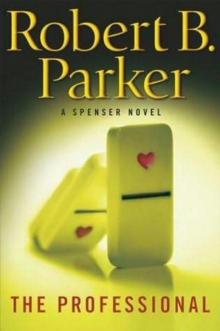 The Professional
The Professional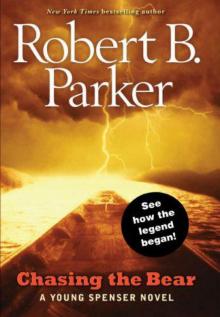 Chasing the Bear s-37
Chasing the Bear s-37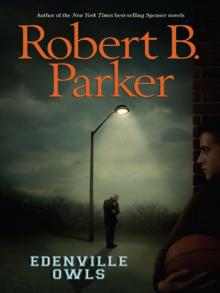 Edenville Owls
Edenville Owls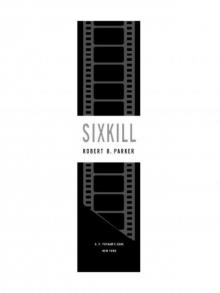 Sixkill
Sixkill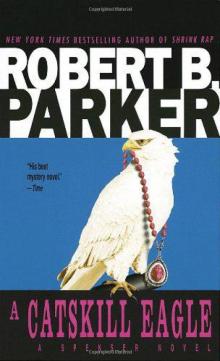 A Catskill Eagle s-12
A Catskill Eagle s-12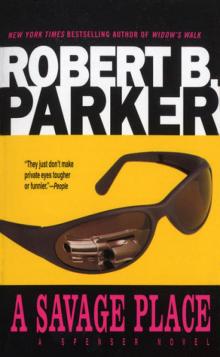 A Savage Place
A Savage Place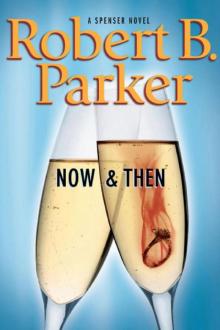 Now and Then s-35
Now and Then s-35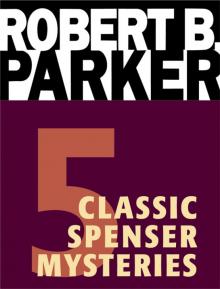 Five Classic Spenser Mysteries
Five Classic Spenser Mysteries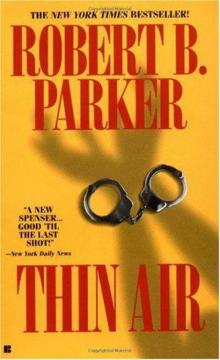 Thin Air s-22
Thin Air s-22